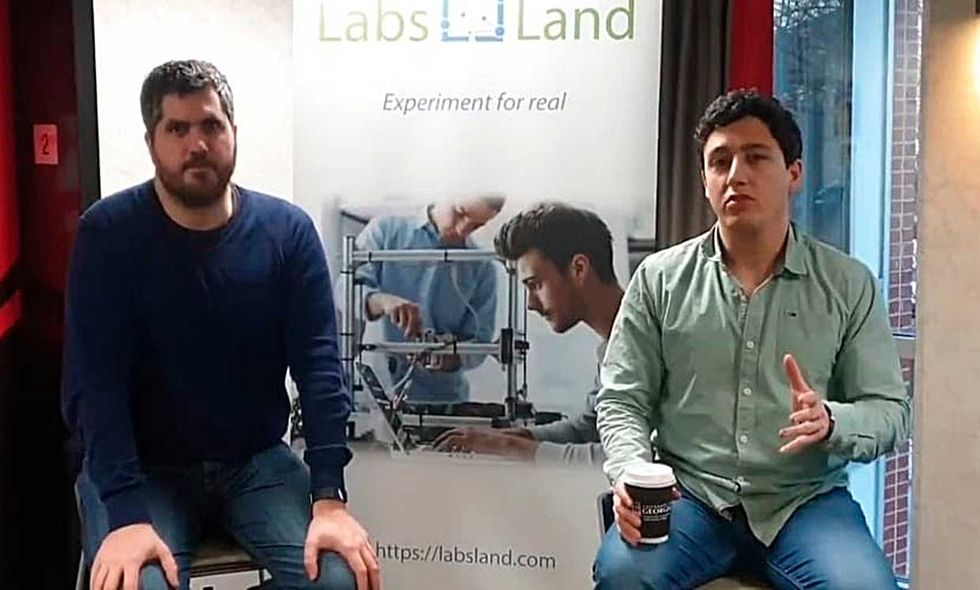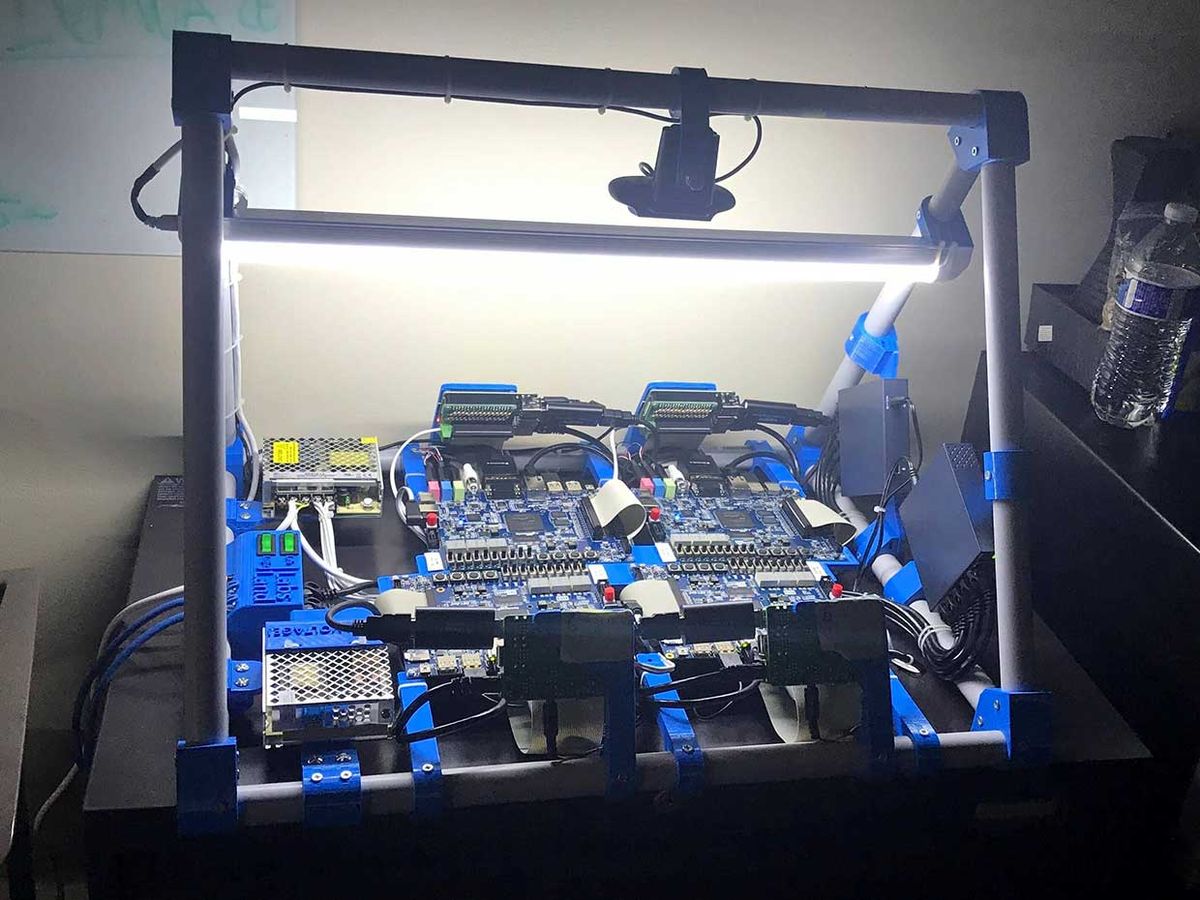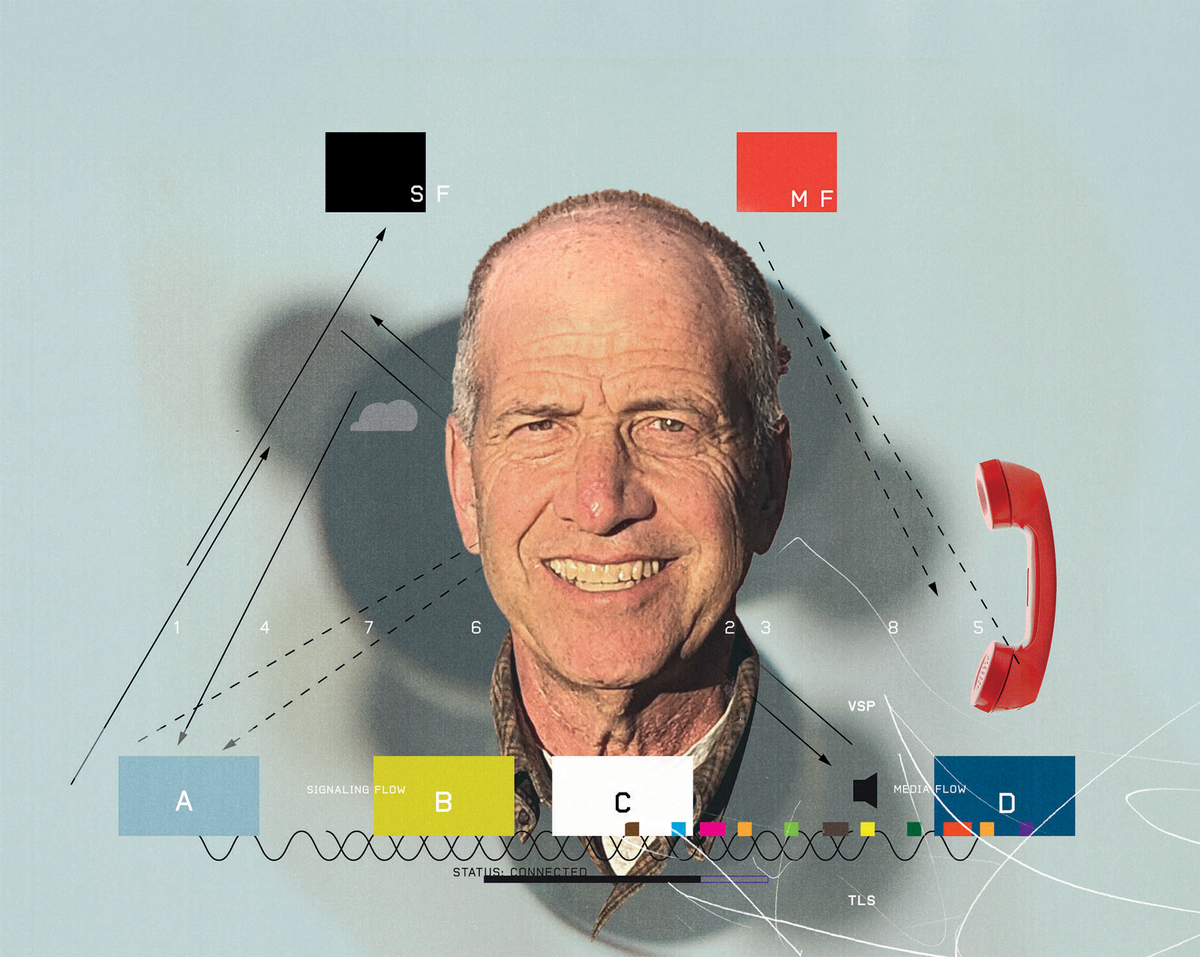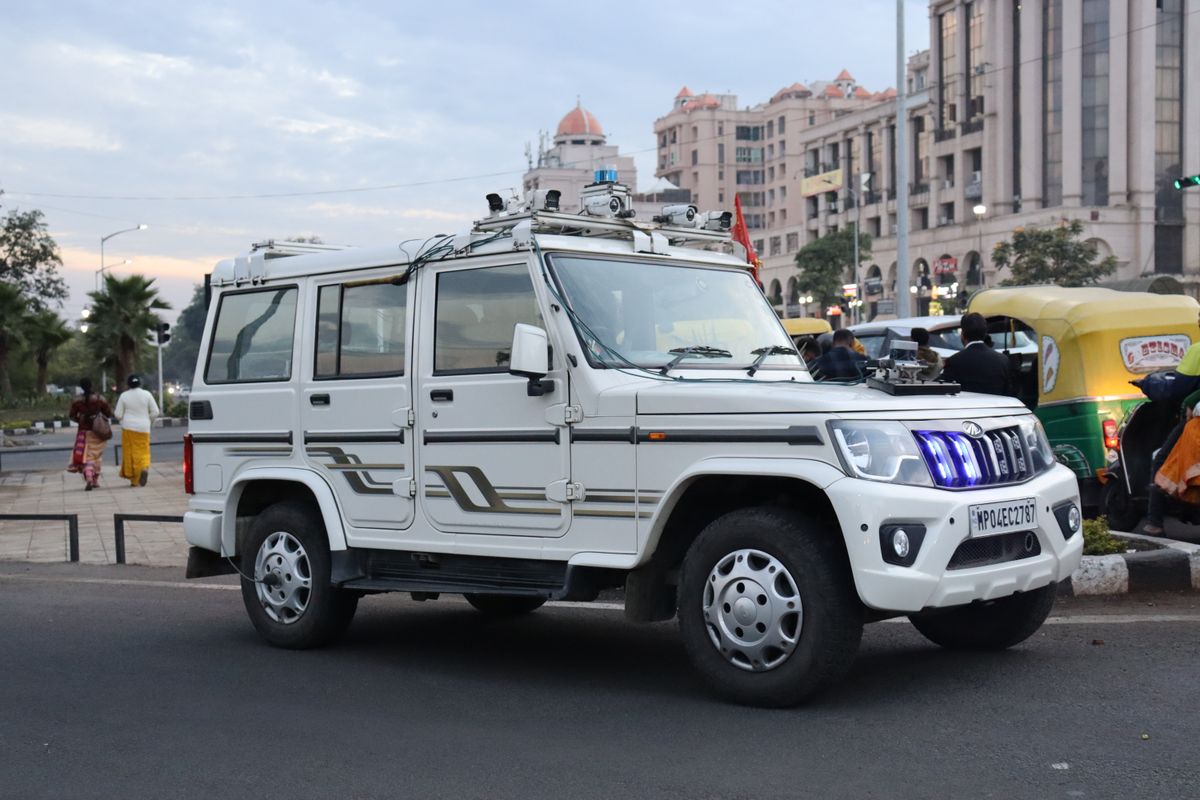
THE INSTITUTE Hands-on online laboratories have grown in popularity now that schools around the world are conducting classes remotely or restricting the number of students on campus because of the COVID-19 pandemic. The remote options allow students access to a physical laboratory to conduct experiments. They are real labs, not simulations; students use actual hardware and software.
Some universities have their own remote labs, while others are using ones offered by LabsLand, a startup with offices in Bilbao, Spain, and St. Louis. The company provides preuniversity schools and colleges with access to a network of 30 university labs that cover six topics: biology, chemistry, electronics, physics, robotics, and technology.
Students can learn how to program an Arduino Uno board, for example, or experiment with principles of analogic electronics.
LabsLand and its partner universities use cameras, sensors, and other equipment to enable students to monitor and interact with the laboratory setups. The students use web-based interfaces designed by LabsLand.
The company also can build labs for schools and provide technical support for those that operate their own remote lab.
The startup’s labs can be integrated with learning platforms such as Blackboard, Canvas, Classroom, and Moodle.
LabsLand provides analytics programs so instructors can monitor their students’ progress.
Schools pay a subscription fee for the use of the lab network, but LabsLand provided free access to its labs from March to September. Since October it has been offering discounts on its subscriptions in certain circumstances.
The startup’s founders are IEEE Senior Members Pablo Orduña and Luis Rodriguez-Gil.
“Our labs have been used more than 150,000 times this year by 120 universities,” Orduña says. “Students are remotely able to upload their code and run it. They’re able to move switches and touch key pads and see the effect in real time of what’s happening in the hardware.”
PROOF OF CONCEPT
Virtual labs might seem like a new concept, but Orduña and Rodriguez-Gil have been working in the field for more than a decade.

The two founders met in Bilbao at the University of Deusto.
“We were in the same research group,” Rodriguez-Gil says. “Pablo started in the lab in 2004. I started in 2009. Pablo started his Ph.D. in 2007 and finished in 2013. I started my Ph.D. in 2014 and finished in 2017. Pablo was one of the two Ph.D. advisors.”
They worked on remote hands-on labs as part of the university’s WebLab-Deusto research group, led by their Ph.D. advisor, IEEE Senior Member Javier García-Zubía, a former chair of the IEEE Education Society’s Spanish section chapter.
Orduña and Rodriguez-Gil continued in the field after they graduated. LabsLand, which launched in 2015, is a spin-off of WebLab.
“We saw that as our university’s [remote lab] was growing, there were some [pieces] missing, and [it also] needed technical and organization support,” Orduña says. Along with other colleagues who invested time and money, Orduña and Rodriguez-Gil decided to create LabsLand to provide more services.
LabsLand recently received funding from Arch Grants, Impact EdTech, and BBK Venture Philanthropy.
INSTRUCTOR FEEDBACK
Dominik May, an assistant professor and education researcher in the Engineering Education Transformations Institute at the University of Georgia, in Athens, says that even before the pandemic, several electrical and computer engineering classes had started using remote labs in addition to traditional in-person labs. Now, he says, LabsLand provides several of the college’s labs, which are used for teaching electronics and circuits design as well as chemical engineering courses.
“Our aim is to not only integrate remote labs into courses as some kind of additional service but also we see that online labs have the potential to be transformative for engineering education as a whole,” May says. “They are a perfect way to customize learning experiences and to prepare students for an environment in which remote working is becoming more important.”
More universities have subscribed to LabsLand since learning went remote to slow the spread of the coronavirus.
Engineering professors who were teaching digital design using field-programmable gate array boards at the University of Washington in Seattle and New Mexico State University, in Las Cruces, started looking for ways to make the boards available to students.
UW’s assistant teaching professor Rania Hussein says the school shipped lab kits to students, but some sent overseas were lost in customs. The IEEE senior member teaches electrical and computer engineering technology. The labs are offered jointly to electrical engineering, computer science and engineering students, which she says serves “a large number of students.”
Hussein says switching to remote labs allows students to get the same experience as in an actual classroom, and at their convenience. The instructors can access the students’ work by viewing their demonstration via a webcam. For example, the teachers might ask the student to flip a switch to see LEDs turn on or check that a counter is working correctly. These are the same assessments they would conduct in face-to-face classes.
“Students are everywhere now in the world. [When] they cannot be on campus, they still need to do the labs and they still need access to the hardware. We needed a reliable and sustainable solution for this,” she says. “That’s why I believe educators need to think differently given the new circumstances such that they provide the same experience as much as possible to the students without the hassle of the logistics.”
Hussein deployed eight FPGA boards at UW for her digital design class in the Autumn quarter. The boards are integrated into the LabsLand network. Hussein reports a successful experience with the remote lab and expects it to continue serving the needs of her course in future quarters.
IEEE Senior Member Paul Furth, an associate professor in NMSU’s department of engineering technology and surveying engineering, is a big fan of the LabsLand software.
“It’s very easy to use and reliable,” Furth says. “When you’re teaching it to a new user, they catch on quickly.” LabsLands has great hardware, but he pays a ton of attention to the software interface.”
Orduña says the boards used by UW and NMSU are housed at the Public University of Navarre, in Pamplona, Spain. Overseeing the lab is Cándido Aramburu, a professor of electrical, electronic, and communication engineering. Although UW now has its own boards, Orduña says, Aramburu’s boards have been used by thousands of students during the pandemic.
IEEE CONNECTION
Orduña and Rodriguez-Gill have been active in IEEE for some time.
Their engineering thesis on computer science and Orduña’s Ph.D. research thesis won awards from the IEEE Education Society’s Spanish section chapter.
Orduña is a past vice chair of the society’s standards committee. He cowrote IEEE Std. 1876-2019 Networked Smart Learning Objects for Online Laboratories.
Orduña proudly notes that the student branch at the Spanish National Distance Education University, in Madrid, uses LabsLand’s remote labs regularly for its events.
Both founders recently became professional members of the school’s newly created Nu Alpha chapter of IEEE Eta Kappa Nu.
Several of their research papers have been published in the IEEE Xplore Digital Library.
“We have always kept a close relationship with the IEEE community,” Orduña says.
Kathy Pretz is editor in chief for The Institute, which covers all aspects of IEEE, its members, and the technology they're involved in. She has a bachelor's degree in applied communication from Rider University, in Lawrenceville, N.J., and holds a master's degree in corporate and public communication from Monmouth University, in West Long Branch, N.J.



